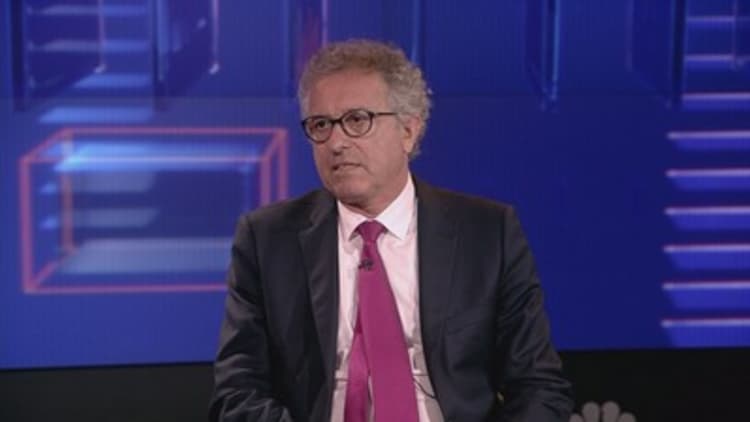
There is no precedent in the euro zone to address the debt pile of a bailed-out county and that's why discussions on Greece's debt are taking so long, the Luxembourg finance minister told CNBC.
European institutions and the International Monetary Fund (IMF) have struggled to find an agreement over how to make the Greek debt — which stands at about 180 percent of gross domestic product — more sustainable.
The discussions have dragged since the the current bailout program – Greece's third – started in 2015. However, as the financial assistance to Greece is due to end this August, the country still doesn't know how its future debt payments will be structured.
Speaking to CNBC Thursday, Pierre Gramegna, the finance minister of Luxembourg, said that the reason why the process is taking so long is because this has never happened before.
"We have a post-program surveillance that has been going on for all the countries that were supported and here (Greece) there are some elements that are additional; when something is additional it needs more discussion," Gramegna told CNBC's Joumanna Bercetche.
Gramegna continued: "We are still at early stages here, because this is a new element compared to what we had with other bailout programs."
Previous bailed-out countries, like Ireland and Portugal, did not see their debt pile rearranged but Greece has called for its debt to be restructured.
Greece's creditors need to reach an agreement with the IMF over the sustainability of the Greek debt by June 21. Failure to agree on debt relief for Greece would not only make Greece's return to the markets more abrupt but could also compromise the credibility of providing financial assistance to European countries.
The Greek government has yet to implement 88 measures related to its bailout program, such as speeding up a privatization program, by the June deadline.
Gramegna told CNBC that he believes Athens will put the necessary policies forward and complete the third bailout program successfully.
"The Greek economy has performed much better than anticipated...(this) brings us to the point that Greece is going to fulfill all its obligations by the end of August," he said.


